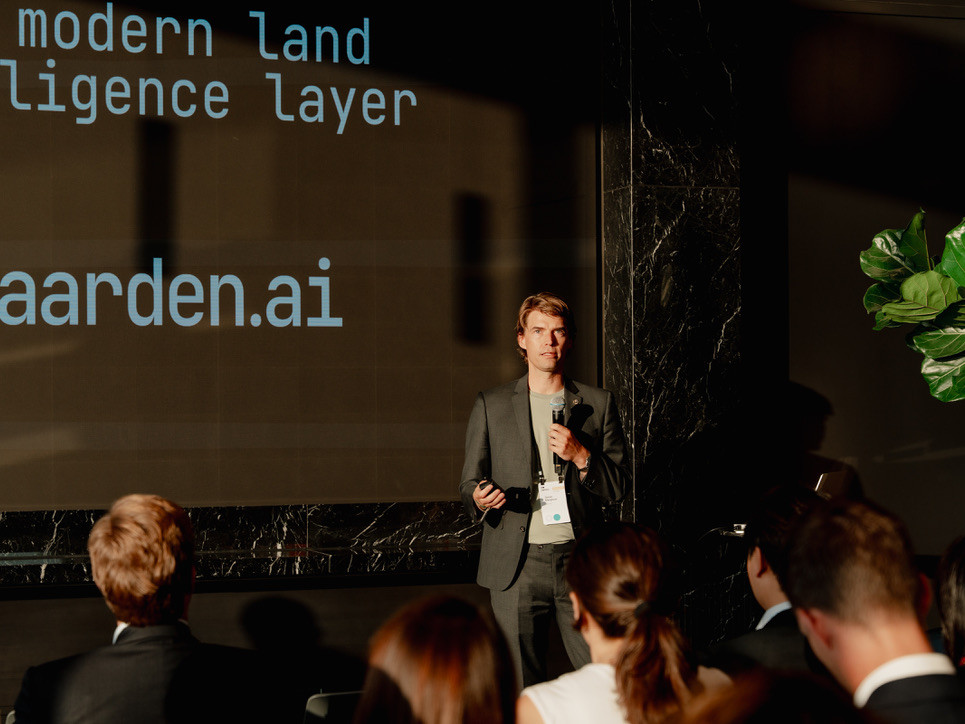Aarden AI: Empowering Landowners in the Modern Development Landscape
In a significant move that could reshape how landowners negotiate with developers, Seattle startup Aarden AI has emerged from stealth mode with $4 million in funding. The company has built an AI platform specifically designed to empower landowners in an increasingly complex property development marketplace. As tech companies urgently seek locations for data centers and clean energy installations expand across the country, Aarden’s technology aims to level the playing field for property owners who have historically been at a disadvantage when negotiating with sophisticated developers.
Aarden AI’s founder and CEO, Danan Margason, identified a critical imbalance in the land development ecosystem that has persisted for decades. While developers have long had access to sophisticated tools and resources to identify optimal properties and negotiate favorable terms, landowners have largely been left to navigate these complex transactions on their own. This asymmetry has bred skepticism among property owners, even when potentially beneficial opportunities arise. “Landowners have become increasingly skeptical of working with developers, even when opportunities exist,” Margason explains, highlighting how this mistrust can prevent mutually beneficial development from occurring. Aarden’s initial customers are primarily businesses managing extensive timberland portfolios – entities that understand forestry well but lack the tools to accurately evaluate alternative land uses, particularly in today’s rapidly evolving landscape of data centers and renewable energy projects.
The technical solution Aarden provides is impressively comprehensive. Their platform creates detailed property maps incorporating crucial variables like elevation, soil composition, proximity to energy transmission infrastructure, environmental features, wildlife habitats, and solar intensity. Beyond just mapping physical attributes, the system can estimate financial returns for various potential land uses, streamline the due diligence process that often slows deals, and even assist with the legal complexities of transactions. What sets their approach apart is the AI foundation that allows landowners to interact naturally with the system – asking questions and exploring different scenarios in a conversational way that makes complex data accessible. This stands in stark contrast to the “multi-decade assumptions and Excel models” that have dominated land assessment until now, as noted by Ben Eidelson, general partner at Stepchange, one of Aarden’s investors.
The financial backing for Aarden comes from an impressive roster of investors with strong climate and technology credentials. The $4 million initial round was led by Planeteer, with participation from Stepchange, Founders’ Co-op, KDX, Superorganism, and Len Jordan (a venture partner at Madrona). The company’s business model centers on subscription fees from landowners, with plans to potentially add usage-based pricing for more complex modeling scenarios in the future. Perhaps most interestingly, Aarden aims to eventually generate revenue by facilitating successful matches between landowners and developers – essentially being compensated for helping negotiate transactions that satisfy both parties. While other companies like Acres.com and Land id offer property assessment tools, Aarden’s explicit focus on serving landowners’ needs appears to distinguish it in the marketplace.
The five-person team behind Aarden brings significant expertise from relevant industries. Margason previously served as chief product officer at Carbon Direct, which helps corporations achieve climate goals, and worked at Seattle marketing startup Tune. His co-founder, Ben Hudson, who leads applied science, brings experience from Zillow as an applied scientist. The team is rounded out by founding engineer Jasper Croome (formerly of Carbon Direct and Amazon), strategy and operations lead Isabella Todaro (previously a director at Climate Neutral), and engineer Steven Yee (with experience at Carbon Direct, Convoy, Porch, and other Seattle companies). This combination of expertise in climate initiatives, real estate technology, and engineering creates a foundation well-suited to Aarden’s mission.
An intriguing tension exists at the heart of Aarden’s work. Many of the company’s team members and investors have strong environmental and climate credentials, yet the platform could potentially facilitate converting forests to data centers or solar farms – conversions that some environmentalists might question. When asked about this apparent contradiction, Margason acknowledged that this concern receives significant internal discussion. The company’s position is nuanced: they aim to support responsible development by providing comprehensive information about both economic and environmental impacts of land use changes. “If data centers are going to get built, if homes are going to get built, how do we help provide the right layers of information to inform not just the economic outputs, but also the environmental outputs,” Margason explained. The company believes that better information will ultimately lead to more balanced decision-making that considers both financial returns and environmental stewardship. This approach seems to resonate with timberland owners, who appreciate the platform’s ability to help them evaluate development proposals with a more complete understanding of potential consequences.
As we look toward 2026, Aarden AI represents an interesting intersection of artificial intelligence, climate considerations, and property rights. The company is positioning itself at the nexus of several major trends: the explosive growth of data centers to support AI development, the expansion of renewable energy infrastructure, housing shortages in many regions, and increasing concern about responsible land use. By empowering landowners with better information and negotiating tools, Aarden could potentially influence how development occurs across significant portions of the American landscape. Whether this leads to more balanced, environmentally conscious development or simply accelerates land conversion remains to be seen, but the company’s stated commitment to responsible decision-making offers reason for cautious optimism in a field where economic pressures often override other considerations.















